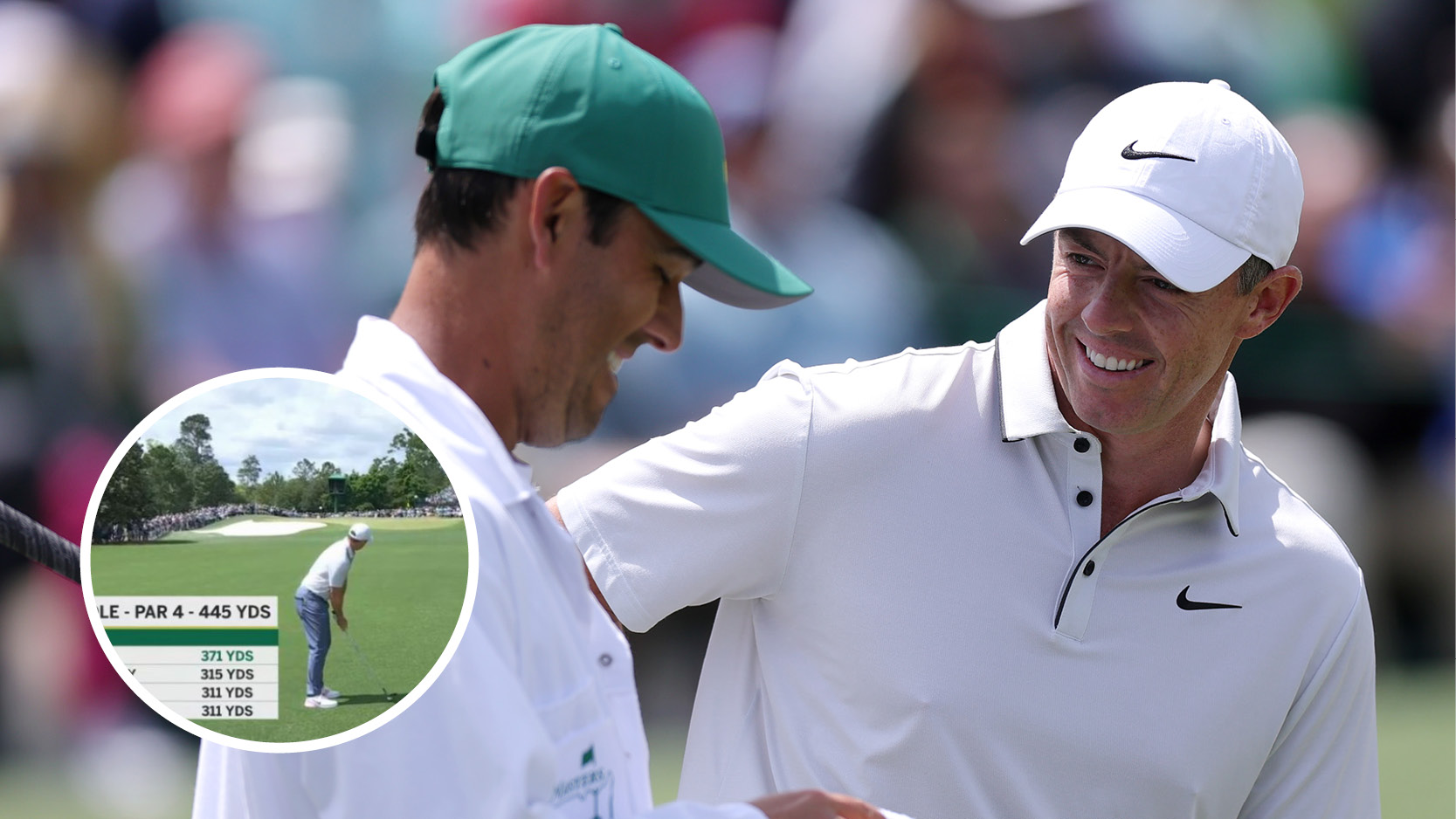Fergus Bisset: CSS whinge
Fergus vents his frustration against one element of the CONGU handicapping system.

This is a brief moan about one element of the CONGU handicapping system - the calculation of "home" and "away" CSS scores in Open competitions.
If you're not aware of it, this is how it works:
In an Open competition, when there are 20 or more home players and 20 or more away players competing, then separate competition standard scratch scores (CSS) will be calculated for both home and away players.
On the surface, this might not seem wholly unreasonable - the home players should know the course a little better, and all that. But, the discrepancies you often see at Open events between the two CSS scores calculated, leads me to think the system is too harsh on the home players.
At last week's Banchory Open, the conditions were quite difficult - the ground was soft, the wind was swirling and the pins were in some tricky positions. SSS at Banchory is 68 and, in both the morning and afternoon, home players' CSS was 68. OK, but the CSS for visitors was 71 and then 70. Three shots and then two shots difference? Surely that's too much.
Now, let me explain how I think this happens and why it's unfair.
Firstly, how is CSS calculated? This is done by establishing the composition of the field (in terms of handicap categories) and then looking at the percentage of the field that returns a nett score of SSS + 2 shots, or better. The higher the percentage of players who have managed that score, the lower the CSS will be (worked out on a sliding scale.)
Get the Golf Monthly Newsletter
Subscribe to the Golf Monthly newsletter to stay up to date with all the latest tour news, equipment news, reviews, head-to-heads and buyer’s guides from our team of experienced experts.
Now, in the Open at Banchory the number of home players was just over 30 out of a field of almost 100. Of those 30 players, most competing were on reasonable form - they were unlikely to pay money to enter a competition around their home course unless they felt they had a chance of winning something.
So, it was always likely there would be some decent scores within that small field (for CSS calculation purposes) of 30. And there were. A few guys from Banchory posted excellent scores in both rounds. Now, take those, say, five players as a percentage of the 30 - you're talking one sixth returning good numbers. This is a high percentage in CSS terms and, so, the CSS calculated was low as a result.
From the remaining 70 visiting golfers, there was nothing like this percentage posting good scores, although there were a number of good performances by away players (it should be pointed out that a number of the "away" players from neighbouring clubs have played Banchory as often as some of the members.) But it's the percentage that counts, so ‘away' CSS was high.
At every Open there's likely to be a small number of local players on good form who will skew the CSS for the relatively small number of home players competing. You could have five home players with blinding scores and 25 with something in the 100s and CSS would still be low. As I said, it's all about the percentages.
It also doesn't seem fair that the good scores of the home players have no effect on the CSS for the visiting players, so it stays high. In my opinion, this makes home CSS too low and away CSS too high.
Everybody competing in an Open competition faces the same challenges and the same conditions. The CSS calculation should take every performance into consideration. In this case it would have been 100 scores rather than 30. The good home scores would have had an impact but they would have been factored against 100 returns rather than 30 and so a more reasonable total CSS of, perhaps, 69 would have been calculated for all involved. That would be level par by the way.... Oh yes, that's what that number at the bottom of the scorecard is.
As a brief note, our secretary agreed with me when I raised an eyebrow at the results board when looking at the massively differing CSS scores. As a comfort, she pointed to the possibility of it working in the opposite direction: That if the home players all had a shocker, their CSS could be higher. This made me feel a little better as I thought it could, theoretically, happen. But actually it can't. I've just checked and seen this clause on CONGU:
2.3 If the CSS calculated for 'Home' players is higher than that calculated for 'Away' players the CSS calculation should default to a single CSS calculation
Yet again it's one rule for them and.. so on and so on...

Fergus is Golf Monthly's resident expert on the history of the game and has written extensively on that subject. He has also worked with Golf Monthly to produce a podcast series. Called 18 Majors: The Golf History Show it offers new and in-depth perspectives on some of the most important moments in golf's long history. You can find all the details about it here.
He is a golf obsessive and 1-handicapper. Growing up in the North East of Scotland, golf runs through his veins and his passion for the sport was bolstered during his time at St Andrews university studying history. He went on to earn a post graduate diploma from the London School of Journalism. Fergus has worked for Golf Monthly since 2004 and has written two books on the game; "Great Golf Debates" together with Jezz Ellwood of Golf Monthly and the history section of "The Ultimate Golf Book" together with Neil Tappin , also of Golf Monthly.
Fergus once shanked a ball from just over Granny Clark's Wynd on the 18th of the Old Course that struck the St Andrews Golf Club and rebounded into the Valley of Sin, from where he saved par. Who says there's no golfing god?
-
 Rory McIlroy Fires Back-To-Back 370-Yard Monster Drives In Birdie-Eagle-Birdie Start To Lead The Masters
Rory McIlroy Fires Back-To-Back 370-Yard Monster Drives In Birdie-Eagle-Birdie Start To Lead The MastersIt's safe to say that the four-time Major winner was full of adrenaline at the start of his third round, with McIlroy pounding two drives that measured a total of 740-yards
By Matt Cradock Published
-
 Who Is On Bryson DeChambeau’s Team? Coach, Caddie, Manager And More
Who Is On Bryson DeChambeau’s Team? Coach, Caddie, Manager And MoreBryson DeChambeau is one of the most high-profile and successful players of his era, but who are the team members helping to guide his career?
By Mike Hall Published